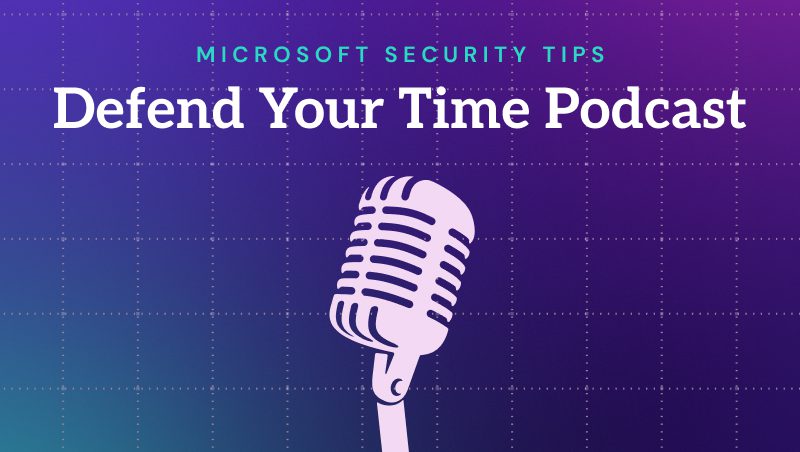Stay Safe While Scoring Deals: Navigating the Cyber Threats of the Holiday Shopping Season

The holiday season is here, and with it comes the excitement of hunting for the best deals online. However, as consumers scour the internet for discounts, cybercriminals are also gearing up—seeing this time of year as a lucrative opportunity to exploit heightened online activity. The combination of increased e-commerce traffic, the rush to snag limited-time offers, and the widespread use of digital payment systems creates the perfect storm for cyber threats.
Why the Holidays Are Prime Time for Cybercriminals
The holiday season isn’t just a busy time for shoppers; it’s a goldmine for threat actors. Online retailers experience a surge in traffic, with millions of consumers making purchases through websites, apps, and digital marketplaces. This massive increase in activity opens countless doors for attackers to exploit. Here’s why:
- Heightened Consumer Urgency Limited-time sales and exclusive deals create a sense of urgency, causing shoppers to lower their guard. Threat actors capitalize on this behavior with phishing campaigns and fake websites mimicking popular retailers.
- Expanding Attack Surfaces The rise of bring-your-own-device (BYOD) policies, coupled with IoT-enabled shopping assistants and digital wallets, offers attackers a variety of entry points.
- Pressure on Retailers and Platforms E-commerce platforms are pushed to their limits during this period, making them more vulnerable to exploits like ransomware or credential stuffing attacks.
Cybercriminals know that the holiday season can create a chaotic environment where mistakes are more likely, and they use this to their advantage.
The Threats Lurking Behind Holiday Deals
During the holiday shopping season, a range of cyber threats becomes more prevalent. Here are some of the most common risks:
- Phishing Campaigns: Scammers send out emails or texts pretending to be from trusted retailers, enticing shoppers with fake deals or shipping notifications. These often lead to fraudulent websites designed to steal personal and payment information.
- Malvertising: Malicious ads, often placed on legitimate websites, redirect users to harmful sites or install malware on their devices.
- Fake Shopping Apps and Websites: Cybercriminals create look-alike websites or apps for popular retailers to trick shoppers into entering sensitive information.
- Credential Stuffing Attacks: With so many shoppers logging into their accounts, attackers use previously stolen credentials to hijack user accounts and make unauthorized purchases.
- Infostealers: Malware, such as Raccoon Stealer, is distributed via fake downloads or malicious links, harvesting sensitive information like passwords and credit card numbers.
How to Stay Safe While Shopping Online
Despite these threats, shoppers can enjoy a safe online shopping experience by taking a proactive and cautious approach. Here are some actionable tips to keep in mind:
- Be Skeptical of “Too Good to Be True” Deals
If a deal seems unrealistically generous, it probably is. Scammers often create enticing ads or emails to lure victims into clicking malicious links. Stick to deals from verified retailers and avoid clicking on links from unsolicited messages.
- Verify Websites and Apps
Before making a purchase, check that the website’s URL starts with “https://” and that the domain matches the official retailer’s name. When downloading shopping apps, only use official app stores like Google Play or the Apple App Store. Check the reputation of the retail with Trust pilot or other review sites.
- Enable Multi-Factor Authentication (MFA)
Adding an extra layer of security to your online accounts can help prevent unauthorized access, even if your login credentials are compromised.
- Monitor Your Financial Statements
Check your bank and credit card statements regularly for unauthorized transactions, especially after making online purchases. Report any suspicious activity immediately.
- Update Your Devices and Apps
Outdated software often has unpatched vulnerabilities that attackers can exploit. Keep your operating system, browser, and apps updated to the latest versions.
- Be Cautious with Emails and Texts
Phishing emails and messages often mimic well-known brands. Look for signs of fraud, such as spelling errors, generic greetings, or unexpected attachments. When in doubt, visit the retailer’s official website directly rather than clicking links in the message.
Why Organizations Must Stay Vigilant
While individuals are on the front lines of holiday cyber safety, it’s important to recognize that these individuals are often also employees. And while organizations may prefer to assume that personal activities like holiday shopping aren’t happening on work devices, the reality is that many employees will likely spend time browsing or making purchases online during work hours. This overlap between personal and professional device use can expose corporate networks to heightened risks, such as ransomware attacks, supply chain vulnerabilities, and fraudulent bot activity.
Organizations must be prepared for this reality, even when there is positive intent behind employees’ actions. Implementing robust security measures—such as regular vulnerability assessments, secure payment systems, network segmentation, and proactive monitoring—can help safeguard not only business operations but also the employees who rely on these systems. Partnering with a trusted managed security provider can further alleviate the burden on internal security teams, providing real-time threat intelligence and expert support to mitigate risks and maintain strong defenses during this high-stakes season.
A Shared Responsibility
The holiday season highlights the interconnected nature of cybersecurity. Consumers, retailers, and cybersecurity professionals all have roles to play in ensuring a safe shopping environment. By staying informed about the threats, taking proactive measures, and remaining vigilant, we can all enjoy the benefits of online shopping without falling prey to cybercriminals.
This holiday season, don’t let the rush for deals compromise your security. A little extra caution can go a long way in ensuring a joyous—and safe—holiday experience.





